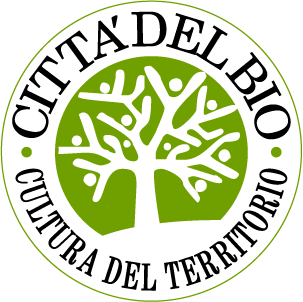Why does Organic Cities Network Europe exist?
“The past, the present and the future of Organic Cities: By joining together to form the European Organic Cities network, our cities have found a way to focus on the future of the younger generation. Mayors, civic leaders and citizens have started to take preserving biodiversity, animal welfare and the sustainable use of our planet’s resources into their own hands.
A sustainable food strategy is of fundamental economic and political importance if we want Europe to become the first climate-neutral continent by 2050.
Organic Cities is the common home where cities and municipalities develop strategies for sustainable food systems and jointly pursue strategies to implement the European Green Deal and the Common European Agricultural Policy.
The long-term goal of Organic Cities is that all inhabitants have indiscriminate access to fresh, affordable, seasonal and organically grown regional food.”
Claudio Serafini, Director Organic Cities Network Europe
What is Organic Cities Network Europe’s vision and mission?
Since the turn of the century, European cities, towns and regions have played an increasingly important role in promoting organic agriculture, the organic industry and organic food.
 The source of inspiration and the impetus came from the work of Città del Bio, the Italian network of organic cities. They demonstrated the need, the possibilities and the benefits of promoting organic agriculture and food. Ultimately, the idea of founding an organic cities network at European level is due to the dedication demonstrated by Città del Bio since the year 2003.
The source of inspiration and the impetus came from the work of Città del Bio, the Italian network of organic cities. They demonstrated the need, the possibilities and the benefits of promoting organic agriculture and food. Ultimately, the idea of founding an organic cities network at European level is due to the dedication demonstrated by Città del Bio since the year 2003.
As a consequence, there is a wealth of expertise and experience at the local level on how to contribute to a European agricultural policy that pursues food security and sustainable development, improves the quality of life of local and regional residents, and contributes to achieving the objectives and targets set out in the Paris Agreement on Climate Change, in the Sustainable Development Goals (SDGs) and in the Milan Urban Food Policy Pact.
The fundamental priority of safeguarding food security and ending hunger, and the particular vulnerabilities of food production systems to the adverse impacts of climate change. The EU 2030 Agenda will further catalyse a joined-up approach between the EU’s external action and its other policies and coherence across EU financing instruments.
Organic Cities Network Europe also harnesses this expertise to promote thriving, competitive organic farming within and outside of Europe, boosting choice, creating employment and improving health outcomes, particularly for children and young people. The Network also responds to the strong desire amongst European consumers to access local, seasonal and affordable food, and to support local farmers and producers. Accurate, consistent and reliable labelling of organic products form a core component of more informed consumer choice in this context.
Network Mission
How does Organic Cities Network Europe go about realising its vision and mission? Partner cities, municipalities and districts of the Organic Cities Network Europe share a common goal of improving the quality of life of their citizens by enabling access to good quality organic food. Good quality organic food in this context means sustainable, fresh, seasonal, enjoyable and regionally produced food.
The Organic Cities Network is understood as partner for all institutions, organizations and companies that want to cooperate. In particular, the network can collaborate with EU institutions to promote and influence EU initiatives for organic agriculture and organic food in Europe and in the world. It can also provide a platform for the development of local, regional and national policies and relationships that ensure a strong basis for organic food production in towns and cities across Europe, and ensure these local and regional dynamics policy and initiatives at the European level.
The work carried out by our partner cities:
Network objectives and impact
Explore Organic Cities Network Europe
Now that you know what our vision and mission is, find out which cities, municipalities and institutions around Europe make up the network, who are the key people behind the network, find out how we approach our work, explore the initiatives we have started or been involved in and find out how to become a member.
